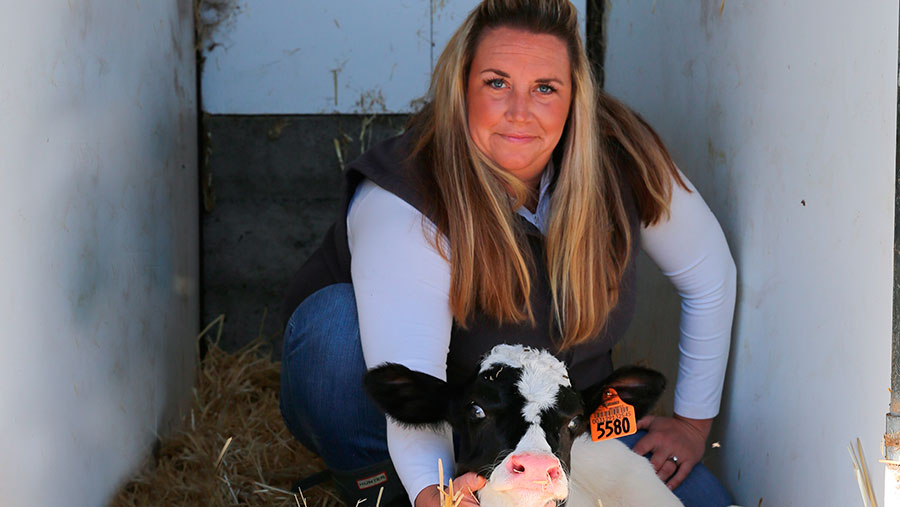Farmer Focus: Milk taxi for calf feeding one of our best investments
 Jessica McIsaacs © Brianna Frey
Jessica McIsaacs © Brianna Frey Last winter we had a lot of trouble with calves – more trouble than we’d had in years.
We would necropsy calves, but couldn’t conclusively determine what was causing the increase in deaths.
Some months prior – after researching and talking with friends – I had been trying to convince my husband we needed a milk pasteuriser and a milk taxi.
See also: Read more from our Livestock Farmer Focus writers
It is designed to pasteurise milk and have it at the perfect temperature ready to feed at the time we feed calves.
The unit feeds out with a wand, and with the press of a button a measured amount of milk is given to each calf.
This means we can feed the same milk we previously were with less bucket lifting.
The milk would be at the ideal temperature – improving digestion – and calves would get a more accurate amount at each feeding, all while cutting calf feeding time in half.
See also: Read more from the livestock Farmer Focus writers
With calf mortality on the rise we would have done anything to improve the situation, so we purchased the milk taxi in the 250-litre unit size.
The machine arrived nearly ready to use. We mounted the mobile pasteurising unit on to our existing calf-feeding truck.
We found a place for it in front of our milk barn where we plumbed water circulation for the cooling jacket and an electrical outlet for the heating mechanism and cleaning process.
We simply programmed the control panel to begin pasteurising so the process would be finished at the times that we feed, both morning and night. That was it.
See also: California at war over minimum farm wage
Now that we are processing eggs on farm we are putting our “check” or unsellable eggs into the machine too.
Eggs are a great source of protein so we might as well use this feed source. We are feeding at the rate of three pasteurised eggs a day to each calf.
The amount of milk varies depending on the calf’s age.
In the past four months since making the change, we have seen drastic improvements.
It is now very uncommon to see any calf scour.
They appear to be growing faster and their coats are slicker and shinier.
Additionally, all the calf milk equipment is cleaner and feeding time has reduced nearly an hour a day.
We love our milk taxi.
Weighing the price with the benefits, it is one of the best investments we have made on our facility.
Jessica McIsaac milks 350 pedigree Holsteins in Petaluma, California, with her husband Neil. They sell organic milk and also have 6,000 laying hens.
